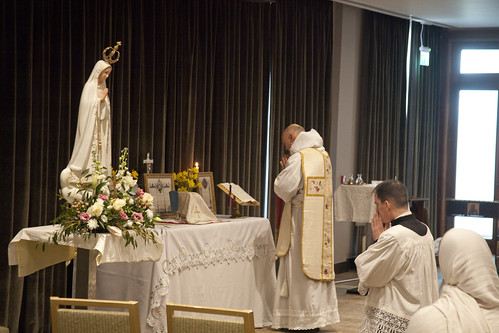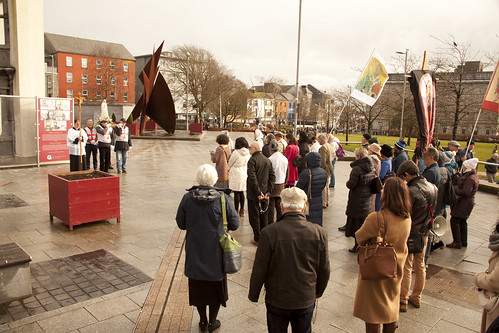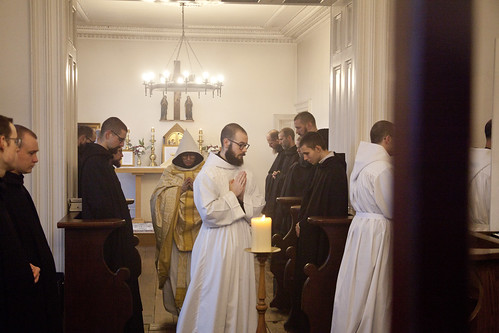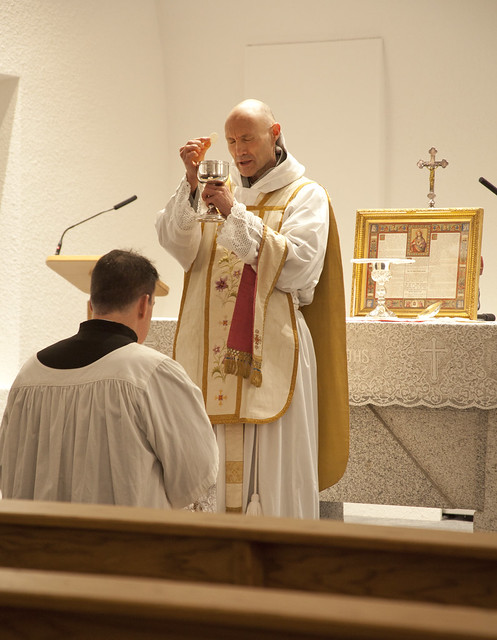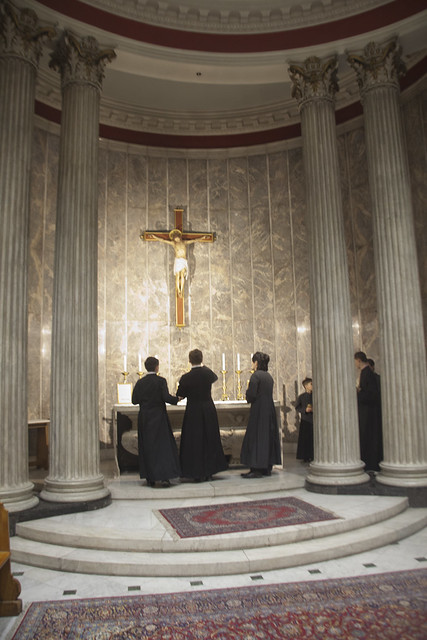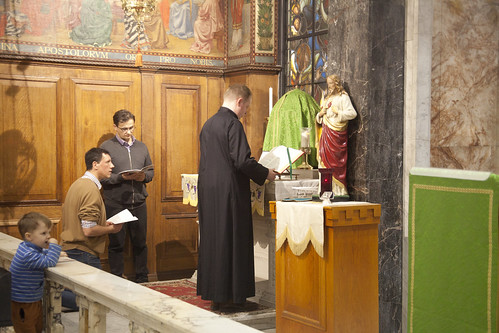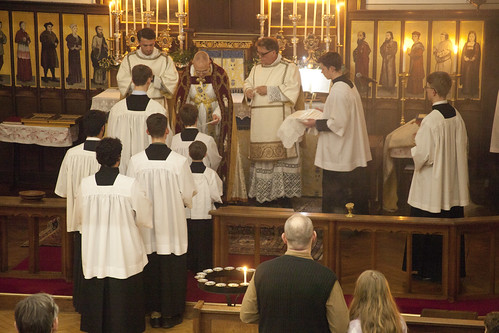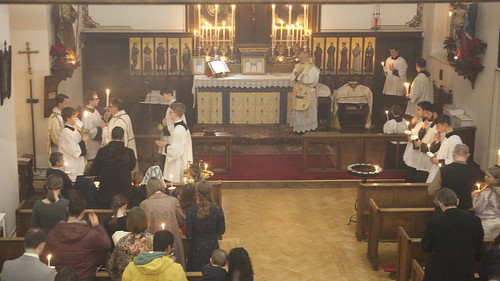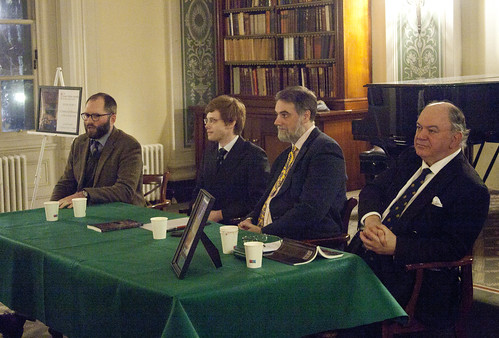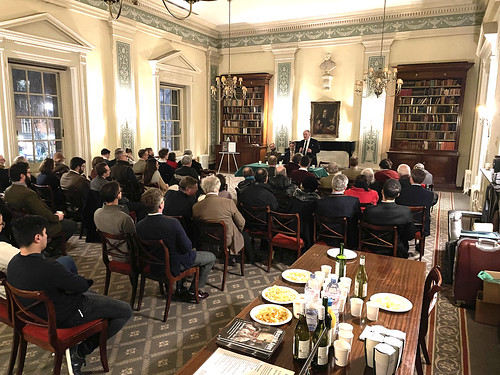Chairman's Blog
Trip to Ireland, 2: Galway
Trip to Ireland: part 1, Silverstream, Dublin, Knock
Before the Galway conference, which will be the subject of the next post, I and other conference participants visited the Shrine of Our Lady of Knock, where Fr Philomeno of the Marian Franciscans celebrated a Low Mass (in the Blessed Sacrament Chapel).
Ash Wednesday and St Valentine: for Catholic Answers
A feast day like Christmas will fall on a Sunday only approximately once every seven years. Even less frequent are the occasions when significant dates of the sanctoral and paschal cycles coincide. The most famous of these occasional coincidences is that between Good Friday and the Feast of the Annunciation, March 25. It last happened in 2016 and will not happen again until 2157.
This year, we have the coincidence of Ash Wednesday and the traditional date of the feast of the Roman martyr St. Valentine.
Talks and Endorsements for 'A Defence of Monarchy'
HE Eduard von Habsburg, Hungarian Ambassador to the Holy See
This is an incredibly interesting and well done book. It is especially valuable that it makes the argument in favour of even a weak monarchy, in its constitutional powers and even in terms of the personal commitments of it representatives. Instead of giving way to despair, the book encourages us to continue to appreciate the constitutional and symbolic importance of monarchy, while we wait for a monarchy that embodies Catholic principles in their fullness.
Fr Calvin Robinson, Patron of the British Monarchist Society
This book provides many lessons to Roman Catholics on why the British monarchy is a good thing; how Christians can be united around the British institution, even with our differences; and a staunch reminder that British heritage is undeniably Catholic, and a strong preserver of Catholic tradition through ceremonies such as the coronation and funeral services of the monarch. The last thing any traditionalist should want to see is the end of Catholic tradition.
Gavin Ashenden, Chaplain to the Queen 2008-2017
This excellent and intriguing new book edited by Dr Shaw, defending the monarchy from a Catholic perspective, offers not only an informed perspective on constitutional developments and realities, but makes a powerful case that the monarchy we have offers us a great deal more than would a republic. It also serves as a defence of the integrity of Elizabeth II against under-informed anxieties held by some passionate defenders of the rights of the unborn child. The grasp of constitutional and historical development makes refreshing reading for anyone interested in our constitutional settlement not only as a matter of history, but also to furnish us with ways of judging the political dilemmas a turbulent cultural future may present us with.
Server training and vestment mending in London
The next dates are
Saturday 20th April (booking page)
Saturday 8th June (booking page)
See the Society of St Tarcisius website, and the Guild of St Clare, for more information.
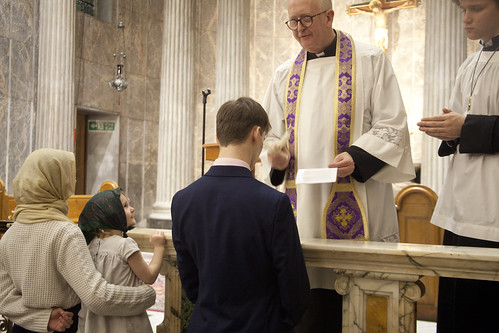
Support the Latin Mass Society
Candlemas in Oxford
Visit to Ireland
74 Merrion Square S,
Dublin 2, D02 HH99
Liturgy and Marriage'
Chairman's Briefing: the African Bishops and the Vatican
Another of my 'briefings' to supporters of the Latin Mass Society.
It begins:
Cardinal Abongo In the last Briefing I introduced Fiducia supplicans and initial reactions to it. These reactions have continued to come in, and many of them are less than welcoming. Indeed, only a small number of Bishops’ Conferences have made statements expressing any pleasure about the document being published. Most official reactions have been very guarded, and some, while diplomatic, clearly regard the document as ill-judged. Many of the strongest negative reactions have come from African Bishops’ Conferences.
You can see my latest 'briefing' here.
Sign up to receive them by email here, along with our monthly newsletter.
Book launch for 'A Defence of the Monarchy'
Blessings for Irregular couples: a conversation with Fr McTeigue
Link With Show Notes:
https://directory.libsyn.com/
Direct Audio Download:
http://traffic.libsyn.com/
Support the Latin Mass Society

